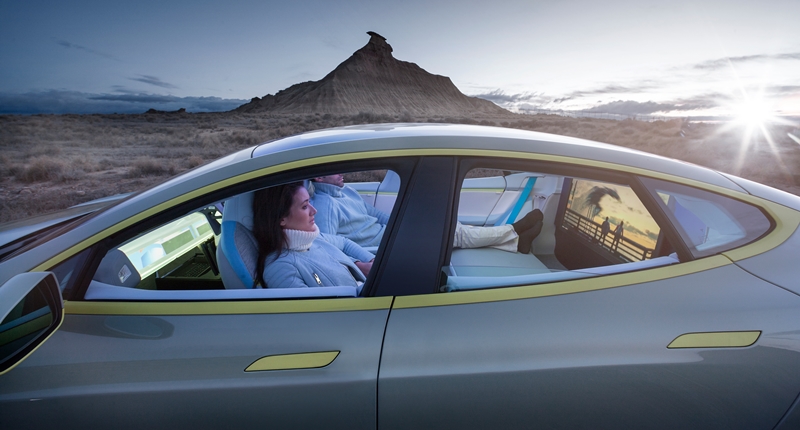With youth unemployment above 60 percent, South Africa is betting on digital skills to drive inclusive growth. Here is how MICT SETA is positioning the next generation for the Fourth Industrial Revolution.
Advances in car tech will bring big rewards, but come with serious risks

The future of car technology is incredibly exciting because of how much the impact will change our lives. For those that drive, it’s easy to think of different aspects that make the experience more stressful than it needs to be. Thankfully car manufacturers are listening and investing the time to make these issues a thing of the past.
That’s not to say that these innovations will simply spring up overnight. There are a number of risks that need to be combated first before they will ever be released to the public. This blog will look at some of the technology currently being worked on, and the barriers that need to be overcome.
Self-driving cars
We’ll start with the most talked about car technology to date, self driving cars. This is an exciting concept and means that people can sit back and relax as they go from A to B. One of the first major investments in this type of tech was Google, but now manufacturers such as Ford and Mercedes-Benz have started to develop their own.
The range of benefits are truly staggering. From maintaining car efficiency, cutting down on accidents and easing some of the worst traffic congestion, the introduction of self driving cars would revolutionise road travel. Whilst all of this sounds amazing there are some major issues to deal with first.
What happens if there’s an accident? Does the claim go on the driver or the car manufacturer because of the software malfunctioning? Is there any need for someone to be behind the wheel, or would this be illegal? These are just a few of the vital questions that are yet to be answered.
Another major point is how people will view self driving cars. Whilst the unique selling point may be having the ability to travel whilst doing very little, it can be an off putting point for those that have been driving for a long period of time who don’t wish to see their vehicle reduced to a taxi like service. It may not be perfect, but driving is generally an enjoyable experience that some people won’t want to be parted from.
Solar-powered cars
For a great deal of time, a large concern has been finding a different fuel source from petrol or diesel. They are finite resources which will eventually run out, and that’s without mentioning how bad they are for the environment. Electric cars have proven to be a popular option, but they still aren’t particularly economical.
This has led car manufacturers to devise an alternative solution. The result is a solar paneled car that uses energy from the sun. Electricity is produced which in turn keeps the engine running. In some concepts there isn’t even a battery, instead using the energy to directly power the engine.
We are a long way from seeing this introduced on the roads though. The main problem is the weather; most employers won’t accept the excuse of “it was too cloudy to drive inâ€. If you live in a place that is known for unreliable weather, such as Britain, it may mean this type of car simply isn’t an option.
Hydrogen cars
Another alternative form of car fuel is hydrogen. This solves the problem of environmental damage by utilising an element thats only by-products are heat and water.
Car manufacturers have already created concept cars that people can drive. Honda, BMW and Chevrolet each have their own models that provide a driving experience which can match traditional vehicles. Already, the potential on show signals a new change within the automotive industry.
The challenges that need to be overcome first are considerable. Hydrogen is one of the most bountiful elements, but it’s so light it can float into outer space before actually used. This means specialist containers made out of expensive materials need to be constructed on every vehicle.
Fueling up is something else that needs to be addressed. Over the world, gas stations are able to assist petrol, diesel and sometimes electric cars. The money required to build an infrastructure which can cope with hydrogen vehicles will cost millions.
Communicating cars
What was once only seen in fiction may soon come true; vehicles that can communicate with each other. This doesn’t mean they’ll be having a casual conversation, it focuses more on safety of drivers. Being notified about road conditions or road blockages before you actually reach them is especially useful.
Another use is if a vehicle in-front begins to slow down without braking before turning around a corner. Your car can detect this and notify you appropriately, helping to avoid an accident and an unwanted impact on your insurance policies.
The first issue would be cost. It isn’t likely that it’ll be featured in standard cars, so you’ll have to purchase a luxury vehicle to enjoy this type of software. Living in the digital age also provides its own issues. If a car logs the information about how you drive and where you go, the information could be sold on to other companies.
Self-parking cars
Something most drivers hate is parking. It can be incredibly frustrating, especially when driving around looking for a suitable space. Thanks to the additions of special cameras and sensors, it can be easier than ever to this trivial task.
By pressing a button your vehicle will drive along until it detects a free space. Depending on the system the car simply parks itself, or the driver needs to change gears and push down on the accelerator whilst the system does the steering.
Although this sounds like a great addition, it’s important to know how to reverse. This type of system negates the need to know how to, which may be perfectly fine when it comes to parking, but there are still real world circumstances where this maneuver will need to be carried out manually.
Future Car Technology And The Risks
Although there are a number of risks associated with these life changing technologies, we remain hopeful that scientists and car manufacturers are able to solve them so the roads can be changed forever. We will have to wait and see.

